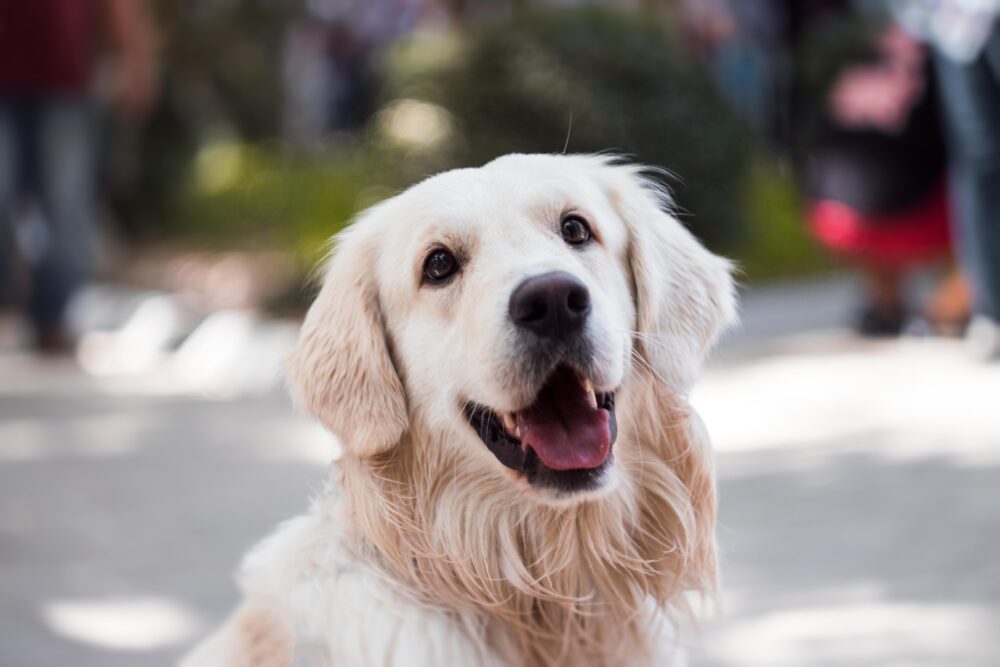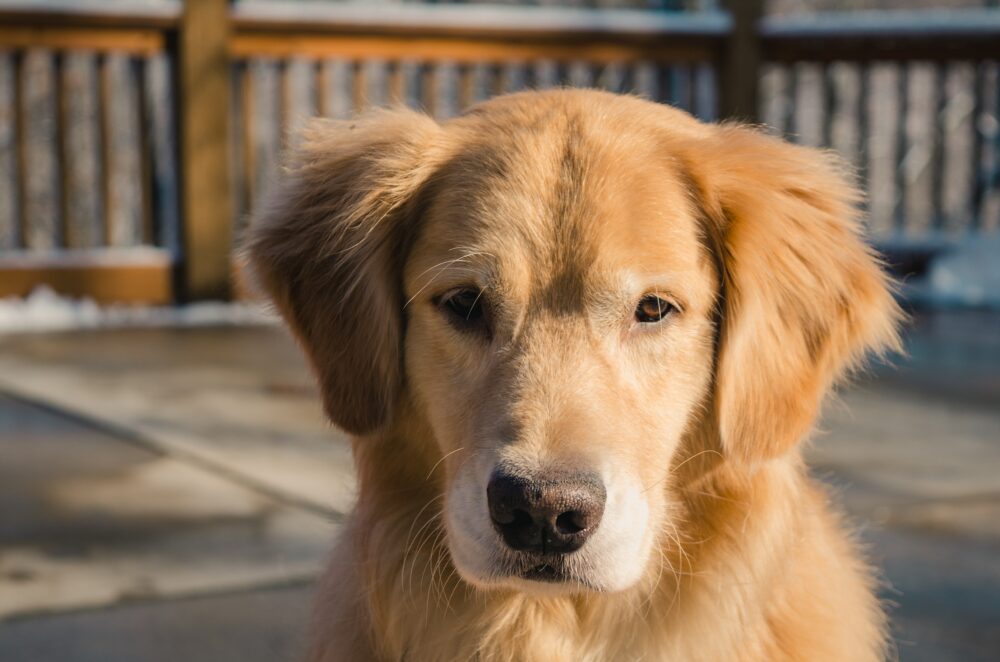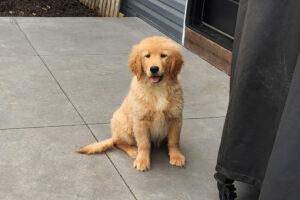Golden Retriever Colors (Which color is the best?)
In the world of Golden Retriever colors, each shade represents a unique facet of the breed’s charm. From the classic gold coat to the rarer variations, these colors add depth and character.
Whether you prefer the traditional or the less common, the array of colors within the Golden Retriever family enriches the special bond between humans and their furry companions.
This article will give you interesting facts about Golden Retriever colors, so let’s dive in!
Key Takeaways
- Golden retrievers come in three primary color shades: light golden, golden, and dark golden.
- The American Kennel Club (AKC) officially recognizes these colors as part of the breed standard.
- Coat color doesn’t significantly impact a golden retriever’s behavior or temperament.
- Golden retriever puppies may change color as they grow, which can be a delightful surprise.
- There’s no one-size-fits-all answer to the “best” color, as it’s all about personal preference.
Standard Golden Retriever Colors Recognized by the AKC
Light Golden
Imagine the soft glow of early morning sunlight – that’s the charm of a light golden retriever! This shade is a gentle reminder of the golden fields where these pups love to frolic.

| Category | Description |
|---|---|
| Visual Characteristics | Light goldens flaunt a pale, almost cream-colored coat that seems to radiate warmth. Their fur dances with a shimmering effect that’s simply enchanting. |
| Common Variations | You might spot light goldens with slightly darker ears or a hint of apricot on their paws. |
| Genetics | Light golden color is often a result of various genetic factors that contribute to the lighter pigmentation. |
| Genetic Factors Contributing to Light Golden Color |
A mix of genes determines this delicate shade, with lighter variations of the “E” locus playing a crucial role. |
| Care and Grooming | Their lighter coats might need a bit more care under the sun to prevent sunburn. Regular brushing keeps their fur looking its radiant best. |
Golden
Ah, the classic golden retriever – like a loyal friend who always brings a smile to your face. This shade captures the essence of the breed’s timeless appeal.
| Category | Description |
|---|---|
| Visual Characteristics | The golden shade exudes warmth and friendliness, with a coat that ranges from rich, deep gold to a lighter, sun-kissed hue. |
| Common Variations | Some golden retrievers might have a slightly reddish tinge, enhancing their striking appearance. |
| Genetics | The genetic recipe for the golden color is a combination of melanin pigmentation and the interplay of various alleles. |
| Genetic Factors Contributing to Traditional Golden Color |
A combination of the “E” and “MC1R” genes creates the traditional golden coat. |
| Care and Grooming | Regular grooming keeps their fur’s natural shine intact, while routine baths help maintain that iconic golden glow. |
Dark Golden
If your heart melts at the sight of a sunset’s warm embrace, a dark golden retriever might be your soul pup. Their rich, deep tones are a sight to behold.
| Category | Description |
|---|---|
| Visual Characteristics | These dogs sport a coat that’s reminiscent of mahogany or polished chestnut wood, radiating a cozy and inviting energy. |
| Common Variations | Dark goldens might exhibit variations in shade, from deep amber to a lustrous coppery tone. |
| Genetics | Specific genetic factors combine to create the depth of color seen in dark goldens, often involving a mix of “E” and “MC1R” genes. |
| Genetic Factors Contributing to Dark Golden Color |
The interplay of genes affects the balance between eumelanin and pheomelanin, resulting in their distinctive dark shade. |
| Care and Grooming | Their darker coats can make shedding less noticeable, but regular grooming sessions ensure their fur remains luscious and velvety. |
Check out our Golden Retriever puppies for sale.
Does Coat Color Affect a Golden Retriever’s Behavior or Temperament?
Golden retrievers come in three shades, but their personalities remain as golden as ever. Whether your furry friend wears a light, golden, or dark coat, their temperament isn’t determined by their color.
Their signature affectionate and friendly nature isn’t tied to the shade of their fur – it’s a core part of the golden retriever essence.
Differences and Similarities Among the Three Shades
While coat color doesn’t influence behavior, each shade might have slight differences in energy levels and shedding patterns. Dark goldens, for example, might shed less visibly than their lighter counterparts.
But remember, these differences are as minor as picking between a strawberry or blueberry muffin – both are delicious in their own right!
The Impact of Age on Color Changes
Golden retriever puppies often exhibit a light, almost white, coat in their early days.
Eventually, your golden retriever pup might go through a bit of an awkward phase in terms of their coat color. This usually happens around the 6 to 12-month mark, which coincides with their adolescent stage. The colors might darken or lighten, leading to a playful guessing game – will they end up golden, light golden, or dark golden?
By the time your golden retriever reaches their first birthday, their adult coat colors should have settled in, resembling their permanent shade. It’s like the masterpiece they were creating all along is finally complete! Some pups might undergo subtle changes in hue as they age, but by and large, the transformation is done.
What Colors Golden Retrievers DON’T Come In
Two hues in particular frequently fall into this category: white and black.
It’s true that English golden retrievers can possess exceptionally light shades, evoking a near-white appearance. However, it’s important to note that these tones aren’t pure white akin to those seen in breeds like samoyeds or bichons.
Here’s the truth: if you come across a dog that appears to be a black golden retriever, it’s not representative of a purebred golden retriever. This distinction is crucial in understanding the breed’s genetic makeup and color variations.
What is the Most Popular Golden Retriever Color?
The most popular Golden Retriever color is largely claimed by the classic shade of gold, which ranges from a light cream to a rich, deep gold hue. This iconic color has become synonymous with the breed’s name itself. Golden Retrievers adorned in these warm, golden tones tend to capture the hearts of many dog enthusiasts.
While variations like red and even the cream-colored coats have their devoted fan bases, it’s the traditional gold that consistently stands out as the go-to choice for many people seeking these lovable companions.
This popularity can be attributed to the breed’s historical roots, its captivating appearance, and the warm and friendly temperament that defines Golden Retrievers.
What is the Rarest Golden Retriever Color?
The scarcest shade among Golden Retrievers’ coat colors is the vibrant red hue, often mistaken for Irish Setters due to its straighter and shorter fur. Red stands as the darkest color within the breed, although it’s not commonly seen in dog shows worldwide.
Dark Golden Retrievers resemble red-coated counterparts but lack the distinct amber undertone, adding a touch of uniqueness to the spectrum of Golden Retriever colors.
How Do You Know What Color Your Golden Retriever Puppy Will Be?
Predicting the exact color of a Golden Retriever puppy can be challenging, as their coat colors can change as they mature. Generally, the color genetics of the parents play a role, but it’s not a guarantee. Puppies can be born lighter and darken as they grow, so while you might get a hint from their parents, it’s often a delightful surprise to watch their true color reveal itself over time.
Conclusion
In the world of Golden Retriever colors, each shade represents a unique facet of the breed’s charm. From the classic gold coat to the rarer variations, these colors add depth and character. Whether you prefer the traditional or the less common, the array of colors within the Golden Retriever family enriches the special bond between humans and their furry companions.
Frequently Asked Questions About Golden Retrievers Colors
At What Age Does the Puppy Coat Change Color in the Golden Retriever Breed?
Golden retriever puppies usually start to show their adult coat color around 6 to 12 months of age. Be prepared for a surprise as your pup’s true colors gradually emerge!
How Can I Tell if My Golden Retriever is Purebred?
While coat color can be an indicator, it’s not foolproof. Consult with a professional breeder or veterinarian for a definitive answer.
Are There Health Issues Associated with Specific Golden Retriever Colors?
No, the color of a golden retriever’s coat doesn’t impact their health. Regular check-ups and a healthy lifestyle are key to their well-being.
What Color Golden Retriever Is Most Expensive?
The less common red and English cream colors may command higher prices. However, the true value of these delightful companions lies in the joy and affection they bring to their families.
Are There 3 Types of Golden Retrievers?
Indeed, there are three recognized types of Golden Retrievers: American, British, and Canadian. Each type exhibits distinct characteristics, yet they all embody the cherished qualities of the breed.
Is There a Black Golden Retriever?
It’s a popular inquiry, yet true Golden Retrievers do not come in black. A black coat typically indicates a mixed lineage, adding a unique aspect to these already charming dogs.
Can I Show a Golden Retriever of Any Color Shade?
Absolutely! The AKC recognizes all shades of golden retrievers in conformation events, celebrating the breed’s diversity.
Remember, when it comes to golden retriever colors, it’s not just about the shade – it’s about the love, laughter, and tail wags they bring to your life. Embrace the spectrum and let your furry friend’s personality shine the brightest!






